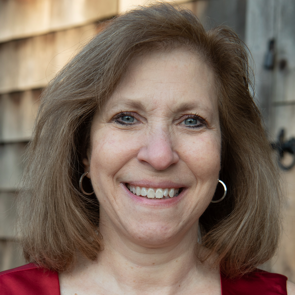
“People will be emotionally and physically devastated if they can’t get eye care because of these Medicaid cuts. It’s just unthinkable what people will have to go through.”
Dr. Eileen Conti, an ophthalmologist who resides and practices in New Jersey’s Seventh Congressional District, represented by Congressman Tom Kean, has spent years serving patients others often turn away. At her ophthalmology practice, which she runs alongside her husband, Dr. Conti became one of the only specialists in the region to accept Medicaid patients—offering them access to vital eye care services that would otherwise be out of reach.
In her clinical work, Dr. Conti has treated patients with a range of insurance types—Medicare, commercial plans, and until recently, Medicaid. She saw firsthand how Medicaid provided access to routine eye exams, cataract surgeries, and glaucoma treatment. “We were one of the only ophthalmology practices in our area… that even takes Medicaid,” she said. If they did not, their patients would be forced to travel long distances to access care.
Unfortunately, access wasn’t always enough. For patients needing something like cataract surgery, challenges affording care extend beyond her office. “We might take it, but the surgery center might not take Medicaid… Just because we’re willing to do it doesn’t mean the rest works out. That was always a big pain.” she said.
Even when her practice offered a reduced fee for self-pay patients, there were still barriers. Some couldn’t afford care even at a discounted rate. “Patients would say, ‘I can’t see very well, but I can’t afford even that reduced fee.’” It was a reality she encountered frequently, particularly with cataract and glaucoma care.
One patient story has stayed with her. A woman with glaucoma missed over a year of care after losing her insurance or not realizing that Dr. Conti accepted Medicaid. By the time she returned, the damage was done. “Now she’s legally blind in that eye,” Dr. Conti said. “She can’t see out of one eye… not because she wasn’t willing to take the drops, but because she just didn’t see us. I would have worked something out with her. I would have done something.”
According to Dr. Conti, insurance coverage makes a measurable difference in whether patients follow through with care. “That’s one of the first questions I ask: do you have this particular insurance? If we take the insurance and they’re covered, they’re far more likely to be compliant.” She also pointed to prescription drug costs as another critical barrier. “Even if I take the insurance, if they don’t have insurance for drops, that’s going to affect things like glaucoma and cataracts in a very negative way.”
When asked about proposed Medicaid cuts, Dr. Conti called them “devastating.” She emphasized that while eye disease may not grab headlines like heart attacks, vision loss has profound consequences—especially for older adults. “Do you know what everyone says is the one sense that they would not want to lose? It’s their vision,” she said. “If people lose vision, especially in older folks, their awareness of their surroundings, their mental abilities can decrease. It will be devastating if people aren’t getting eye care because they can’t afford it.”
Dr. Conti urged members of Congress to understand the real impact of Medicaid in people’s lives. “Please, please do not underestimate the value of Medicaid,” she said. “People will be emotionally and physically devastated if they can’t get eye care because of these Medicaid cuts. It’s just unthinkable what people will have to go through.”
Add your voice to help us continue to push for the best health and health care for all.
SHARE YOUR STORY